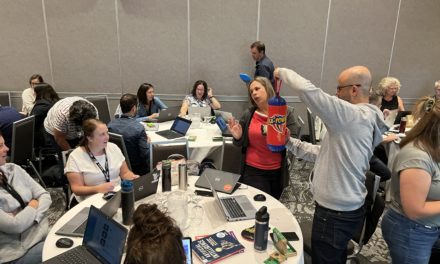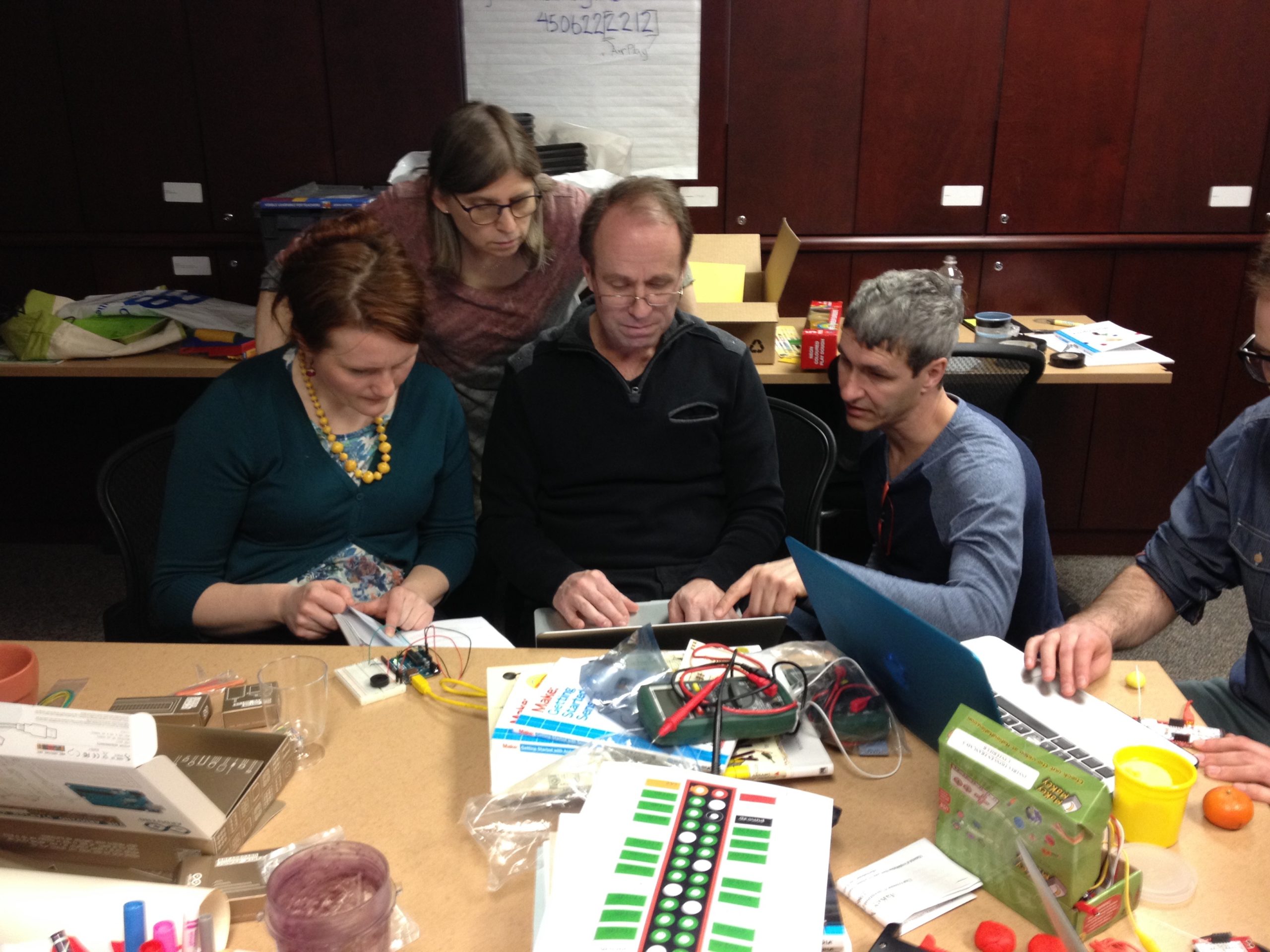Let me start with a story. Some years ago I went to a conference and someone told this story about a long retired teacher who still did substitute teaching. I wish I could remember who shared this as I would like to give credit.
The principal of the school was concerned when this older woman was called in to substitute for a particularly difficult class. When he went to check on the class he found her lying on the desk, with her shoes displayed on a shelf above her. The students had their heads down, eyes closed. She was telling the story of where her shoes had been – the many places they had walked. She challenged them to think about where they would like their shoes to walk and how they would accomplish this.
Our students are already walking into their future and are leaving very public traces on the Internet. There is much talk about students posting inappropriate things online. You will have no difficulty finding information on the risks of being online. What I would like to focus on here is how can we help our students build a positive online presence. How can they plan where their digital shoes will walk to tell a story they would want others to know about themselves?
Students need to realize that the web is a very public place. While it is important to set privacy settings carefully, we should always behave online as if anyone can see what we post. It is naïve to think that if we ban sites in schools we are protecting children. Instead we need to help students understand how they can create a positive place for themselves there.
Why do our students need an online presence?
In the future someone will google their name; the more positive hits, the better the impression! And let’s keep in mind that no hits doesn’t give a good impression either!
Who might google them (or you)?
- Prospective employers – Our students will be applying for jobs, even if just for summer or part-time positions.
- University admission officers
- Prospective partners – More and more, people google before dating someone
- Their family – What do they want them to know
- In the future… they might google themselves
Will they be happy with the tracks they have left? What feels good now (e.g. party photos) may not feel good in the future. And will they be happy in the future when children or grandchildren google them?
One way we can reach our often consumer conscious students is by talking about branding. How do they want their brand perceived? How can they build that brand online? What do they want people to see when they google their name? Start the conversation with this video by Daniel Pink http://vimeo.com/18347489
What should go online? Encourage students to write about volunteer jobs they do, fundraising they have been involved in, accolades they receive for academic, sports or arts participation. Are your students supporting a cause? Make sure to publicize it online. Not only will they be sharing their accomplishments, but also their ability to communicate effectively. Class blogs (even starting in early elementary school) help students understand appropriate online behaviour and more – how present themselves online. While students cannot totally erase the things they might not want to be found, by building a robust positive picture of themselves online, they can ensure that the recent positives rise to the top of a Google search. Teach them to create a portfolio which links some of these things in one place. I use about.me. You can find out a bit about me here.
When I started blogging and developing my online presence, there was a lot of scare-mongering about using one’s name. As a result, much of what you find online about me is under susanvg, not my full name. I recommend using one’s full name – people are more likely to find those positive footprints that way. I know with students we have to be careful about revealing too much, but in revealing too little, we are impeding them from developing a positive online presence.
If students think they have no digital identity, share this video, Digital Dossier. As parents, too, we have to think about what we are posting about our children.
And you? Google your name (Don’t forget to put your name in quotes e.g. “Susan van Gelder” ). What did you find? Do you need to start over? This article will help you with ideas to clean up your past mis-steps http://www.guardian.co.uk/technology/2013/apr/04/delete-your-digital-life-advice The ideas won’t make it all go away, but they will make it harder to find the items you feel less than proud about.
I know I have left many tracks, but I am not afraid of what anyone will find: Susan van Gelder aka susanvg .






